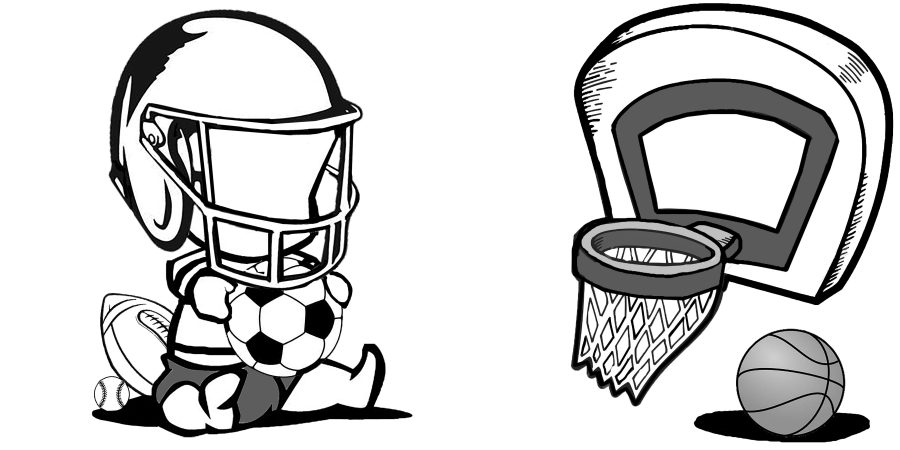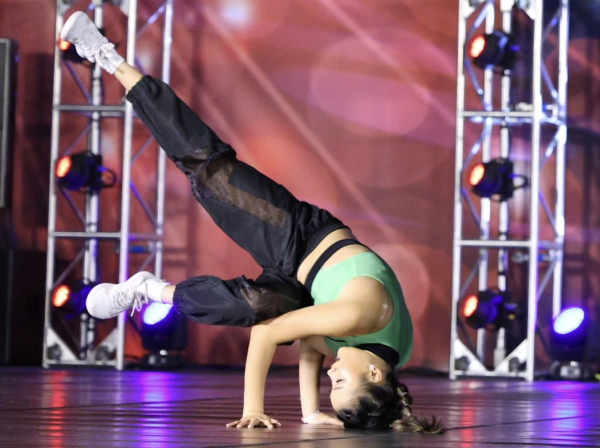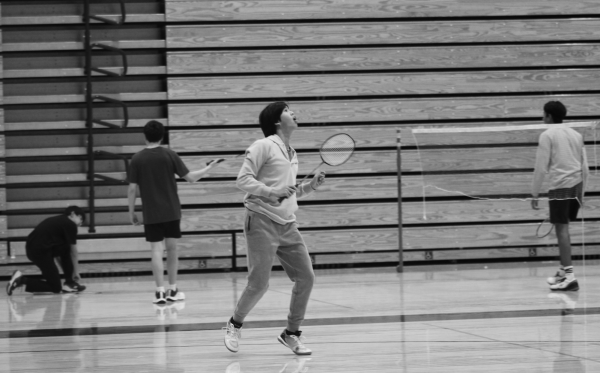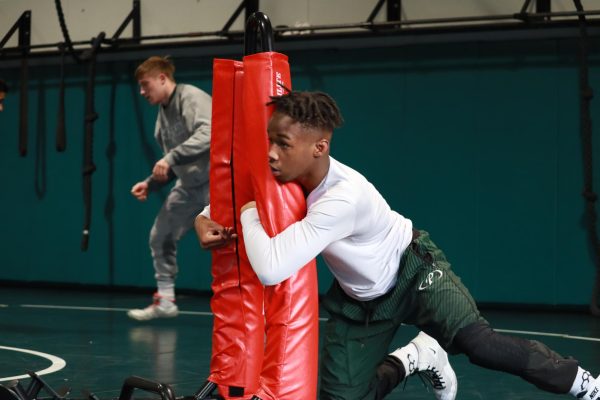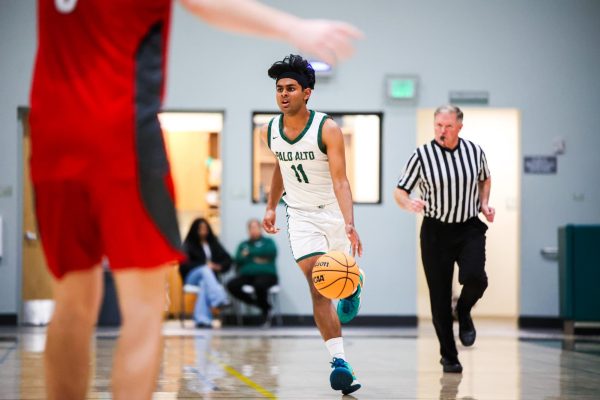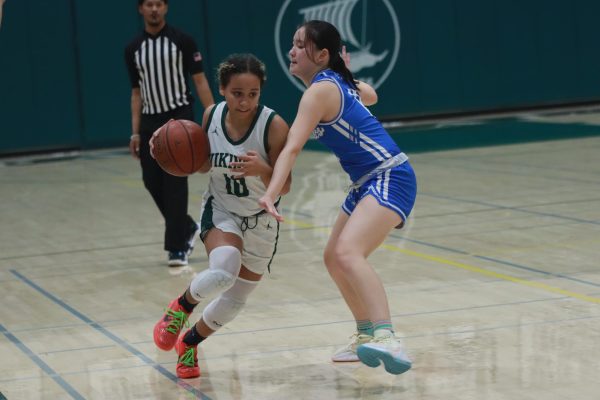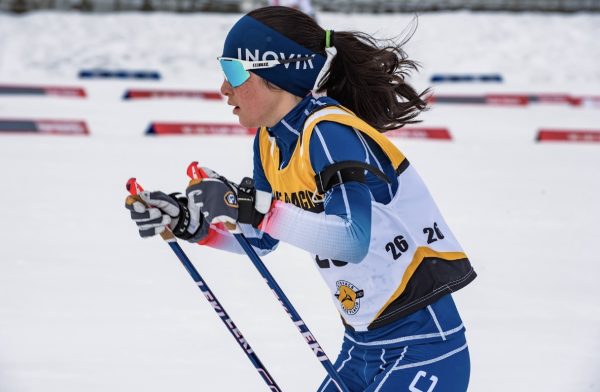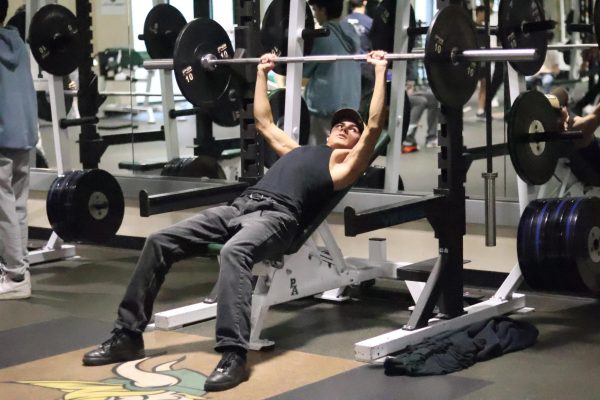Starting to compete in sports at a young age is beneficial
Starting to compete in sports at a young age is beneficial
Many children start playing sports at young ages, however, many wonder if this is actually beneficial to their developments as athletes.
Junior Natalie Maloney has been playing soccer since the young age of six. Now, a junior, she will be starting her third year on Palo Alto High School’s varsity soccer team.
“I have always had a passion for soccer and have enjoyed almost every minute of it,” Maloney said.
Looking for a future in soccer, Maloney is glad she has been playing for so long. She has been granted amazing opportunities to travel, play and bond with her team. However, not everyone is as fortunate.
“Well, I’m going to say [the selectivity of sports teams is] fair given the competition level at Paly,” Maloney said. “There are other leagues that a student can play for, but Paly’s level of play and competition might be very overwhelming and too challenging for a first time player or someone with less experience.”
Our sports system caters to those who are more experienced and talented. More playing opportunities and training programs are presented to the students who have been playing for a longer time. Because of this, parents who want their children to succeed put their kids into a specific sport at a very young age in order to develop their skills sooner.
One reason for this is that college is becoming increasingly difficult to afford, so by starting kids in sports early, parents hope that their kids will qualify to enter the pool of scholarship-worthy athletes and that colleges will pick them out of the thousands to join their program.
Starting early can prove to be extremely beneficial to athletes in multiple aspects. Practicing sports from a young age allows children to learn discipline and cooperation in order to achieve a common goal. In addition, participating in a variety of sports introduces children to different ways of approaching a challenge.
“Being able to stick with a sport for this long is a huge accomplishment for anyone and shows their dedication and heart for the game,” Maloney said.
With the many benefits of starting a sport young comes many drawbacks. Children younger than five years of age do not understand what is going on on the field. Furthermore, children who involve themselves with sports from a young age are more likely to experience burnout and quit their sport sooner.
“If you focus on just your sport at such a young age two things can happen: you get burnt out and you don’t know what else to do because you have not been exposed to the other sports other than maybe in P.E., and number two, you get to cross train and not have the same injuries that you would have,” sports medicine teacher Stacey Kofman said.
The solution for many injuries in sports is cross training. Cross training is when an athlete practices a sport that is not their main sport. This allows them to develop their muscles and improve overall fitness and performance.
“It will make you a better athlete in your specific sport if you cross train more often,” Kofman said.
As children develop, so do the time commitments of their sports. Along with school teams, club and travel teams are added to the list of extracurriculars. Student athletes end up practicing their sport all year round, which while creating excellent athletes, can lead to many overuse injuries and academic stress.
Maloney has experienced exactly this situation. Dedicating so much time to soccer, she has endured many injuries, including bruised ribs, concussions and sprained ankles. She also does not have as much time for homework, a typical struggle of dedicated athletes.
“Especially now that I’m older and have to deal with junior year homework, it’s definitely a huge time commitment, but I love to play so if that means I stay up until 1 or 2 in the morning doing homework, that’s worth it to me,” Maloney said.
Injuries have become increasingly common in high school athletes. Students from the ages 14 to 18 experience over two million injuries each year.
Additionally, high school students account for over 30,000 hospitalizations each year, according to professional athletic trainers John W. Powell and Kim D. Barber-Foss.
“I think [starting playing one specific sport at a young age] is doing kids a huge disservice,” Kofman said. “I see more and more student athletes who are not as coordinated with overall sports, they’re really good at let’s say soccer, but they have no hand eye coordination for tennis, ping pong, basketball, any other sports that [PE classes] go out and just play.”
When children get older and go into high school, school teams become increasingly challenging to join. Many of the varsity team sports are filled with kids who have been playing ever since they could walk and if a student who has not been playing that long tries to join, they are at a disadvantage and typically unable to. Eventually, it escalates to the point where it becomes a social right of passage to join a sports team. If a student does not make the team they can often feel left out and held back.
“The solution is, especially at the [freshman] or JV level, to get kids who are really interested in playing to come out and play,” Kofman said. “And you’ll let the numbers take care of itself as far as who wants to play in the higher level or who wants to be challenged.
You need to find those kids who work hard even if they play the sport just for the season.”
Participating in a team sport during high school is extremely important because it gives students a sense of belonging and provides them with many health benefits.
Students time management improve greatly when students play a sport. This allows the student to clear his or her mind and come back with a fresh perspective, allowing them to be more time efficient.
The training a sport gives a student is applicable to academic work.
“[Playing a sport helps you academically] because when you’re not playing a sport, you allow time to take over and then you obviously feel pressed for time at the end because you’re procrastinating,” Kofman said. “But when you are an athlete you have to be on top of your time management.”
Students are continuously aided by sports, whether in school or on the field. Even if it is not at the highest level, sports will help student athletes connect with others and learn to focus. Sports give you more awareness, better time management, a sense of belonging and more coordination.
However, it is important that student athletes spend the correct amount of time doing a sport that they love in order to get the full effect.
The life lessons and characteristics people acquire through participating in sports can help athletes with the rest of their life, regardless of whether or not they continue to play, or even after college.
Your donation will support the student journalists of Palo Alto High School's newspaper

